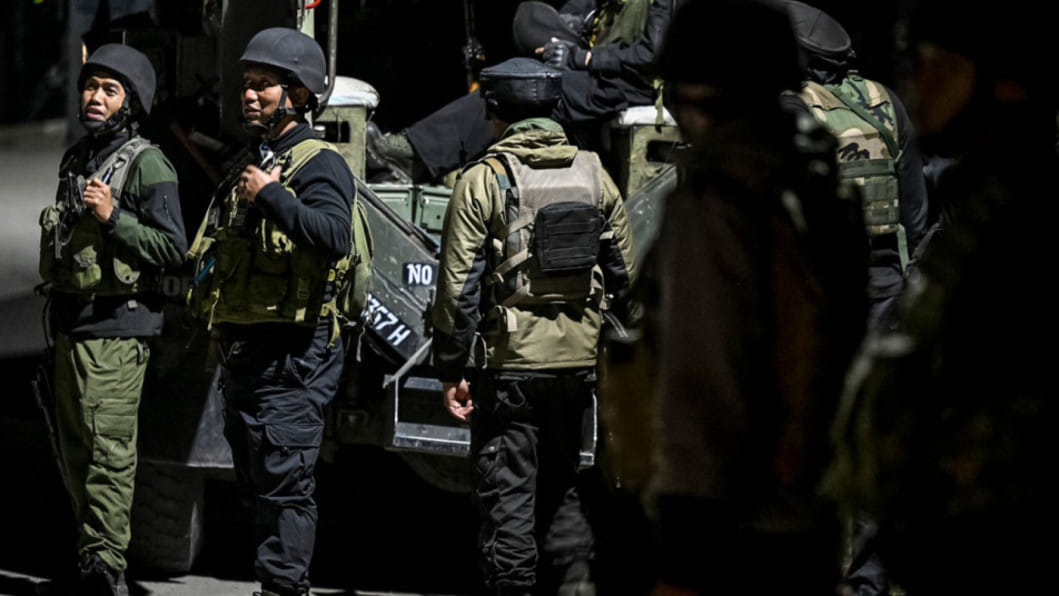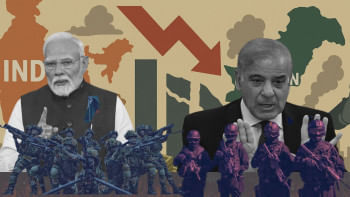The Kashmir attack and the perils of securitisation

On May 7, India conducted airstrikes on alleged terrorist camps in Pakistan and Pakistan-occupied Kashmir (PoK), targeting nine sites under Operation Sindoor in response to the Pahalgam terror attack. Pakistan acknowledged the strikes, claimed civilian casualties, and retaliated with shelling along the Line of Control (LoC), escalating tensions between the two nations. However, both nations have emphasised restraint, with India claiming its strikes to be "measured and non-escalatory" and Pakistan signalling readiness to de-escalate if India steps back.
Earlier, both nations responded swiftly and aggressively after the Pahalgam attack—India by suspending the Indus Waters Treaty and Pakistan by abandoning the Simla Agreement—raising fears of escalation. Yet, while the logic of nuclear deterrence may prevent all-out war, the attack has already unleashed a dangerous wave of securitisation within India where, there is the danger of Muslims being scapegoated as internal threats. This trend risks deepening communal divisions and empowering majoritarian agendas, which is likely to destabilise regional cohesion.
The responses of India and Pakistan reflected their zero-sum approach to bilateral tensions. India accused Pakistan of backing the Kashmir Resistance Front (TRF), a group linked to Lashkar-e-Taiba, and retaliated with non-military measures designed to inflict economic pain. The suspension of the Indus Waters Treaty, a landmark agreement that survived multiple wars, also marks a dramatic escalation. By threatening Pakistan's water security, India signalled its willingness to weaponise shared resources.
Pakistan, in turn, suspended the Simla Agreement, which has long served as a framework for bilateral engagement, and imposed trade restrictions. The tit-for-tat measures illustrate how quickly crises between the two nations spiral. Yet, despite the rhetoric, the risk of full-scale war remains mitigated by nuclear deterrence. Both countries possess second-strike capabilities, and their mutual awareness of catastrophic consequences has historically acted as a brake on escalation. As scholars of international relations argue, the "stability-instability paradox" allows for limited conflicts below the nuclear threshold, precisely the space where both nations are now operating.
However, the geopolitical landscape is more complex today. China's involvement via the China-Pakistan Economic Corridor (CPEC) and its extension into Afghanistan introduces new variables. Any Indian military action could inadvertently draw in China, further complicating the crisis. Meanwhile, India's alignment with the US-led Quad adds another layer of great-power tension. While nuclear deterrence may prevent war, the broader regional instability underscores the fragility of South Asia's security architecture.
Beyond the India-Pakistan standoff, the Kashmir attack has had profound domestic repercussions in India, where the BJP government has leveraged the crisis to justify some repressive measures against Muslims. The attack questioned Prime Minister Narendra Modi's narrative of "peace and stability" in Kashmir post-2019, exposing critical security failures. In response, the state has doubled down on securitisation—a process, as defined by the Copenhagen School, where elites frame an issue as an existential threat to justify extraordinary actions.
The aftermath of the attack saw alleged raids on Muslim homes, arbitrary arrests, and the demolition of properties under the guise of targeting "illegal immigrants." Some BJP leaders have openly vilified Muslims, labelling them as "Pakistanis" or "terrorists," while vigilante violence has surged. In Uttar Pradesh and Karnataka, two Muslims were killed in retaliatory attacks, with one assailant vowing to "avenge the 26 with 26,000 of them." Such rhetoric echoes the long-standing strategy of some influential segments of India—conflating Muslim identity with disloyalty, a tactic that consolidates its Hindu nationalist base.
The Gujarat government's demolition of a Muslim slum under the pretext of targeting "illegal Bangladeshis" exemplifies this trend. These actions are not merely security measures but politically motivated acts. By framing Muslims as internal enemies, those in power reinforce a majoritarian narrative that justifies repression while diverting attention from governance failures.
The securitisation of Muslims in India risks fuelling global jihadist propaganda, which frames Muslims as persecuted minorities in Hindu-majority societies. This narrative could radicalise vulnerable populations, creating a self-fulfilling prophecy of fundamentalism. The international community has largely remained silent, but the repercussions extend beyond India's borders.
Bangladesh, for instance, faces a delicate balancing act. While it condemned the Kashmir attack, the BJP's portrayal of Bangladesh's recent political upheaval as a "colour revolution" or extremist rebellion has strained bilateral ties. The demonisation of Bangladeshi Muslims as "infiltrators" in India further erodes people-to-people relations, undermining regional trust.
Taking stock, the Kashmir attack has exposed the fragility of India's security apparatus and the dangers of securitisation. While nuclear deterrence may prevent war between India and Pakistan, the domestic fallout, including the persecution of minorities, poses a grave threat to India's social fabric. The exploitation of the crisis for political gains risks normalising repression and deepening communal divides.
For regional stability, both sides must recalibrate their approach. Meanwhile, the international community must scrutinise the human cost of the ongoing securitisation, lest silence be interpreted as complicity.
Tamim Muntasir is researcher at Dacca Institute of Research and Analytics.
Shafi Md Mostofa is post-doctoral fellow at the Democracy Institute of Central European University, Hungary, and associate professor of World Religions and Culture at Dhaka University.
Views expressed in this article are the authors' own.
Follow The Daily Star Opinion on Facebook for the latest opinions, commentaries and analyses by experts and professionals. To contribute your article or letter to The Daily Star Opinion, see our guidelines for submission.

 For all latest news, follow The Daily Star's Google News channel.
For all latest news, follow The Daily Star's Google News channel. 






Comments